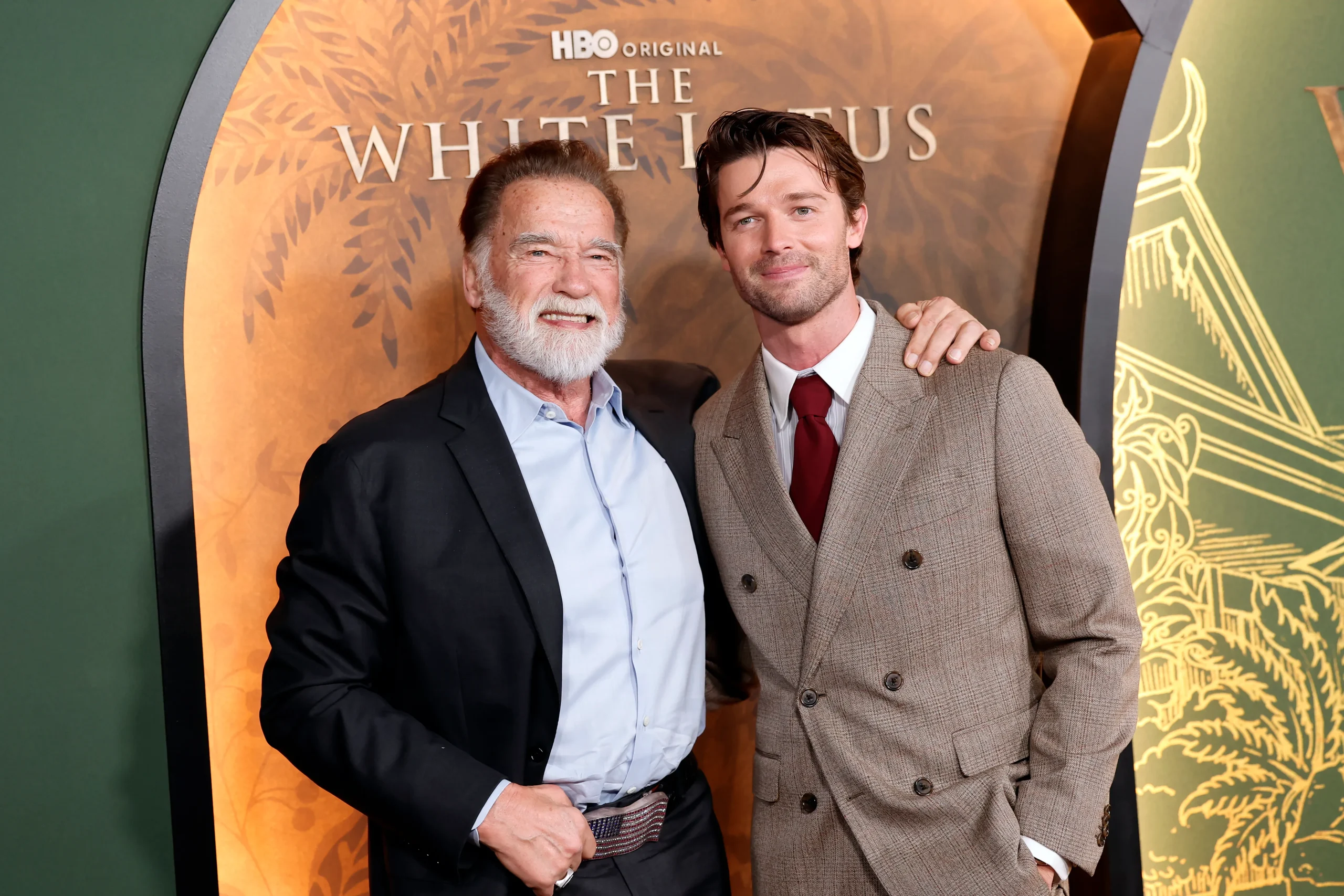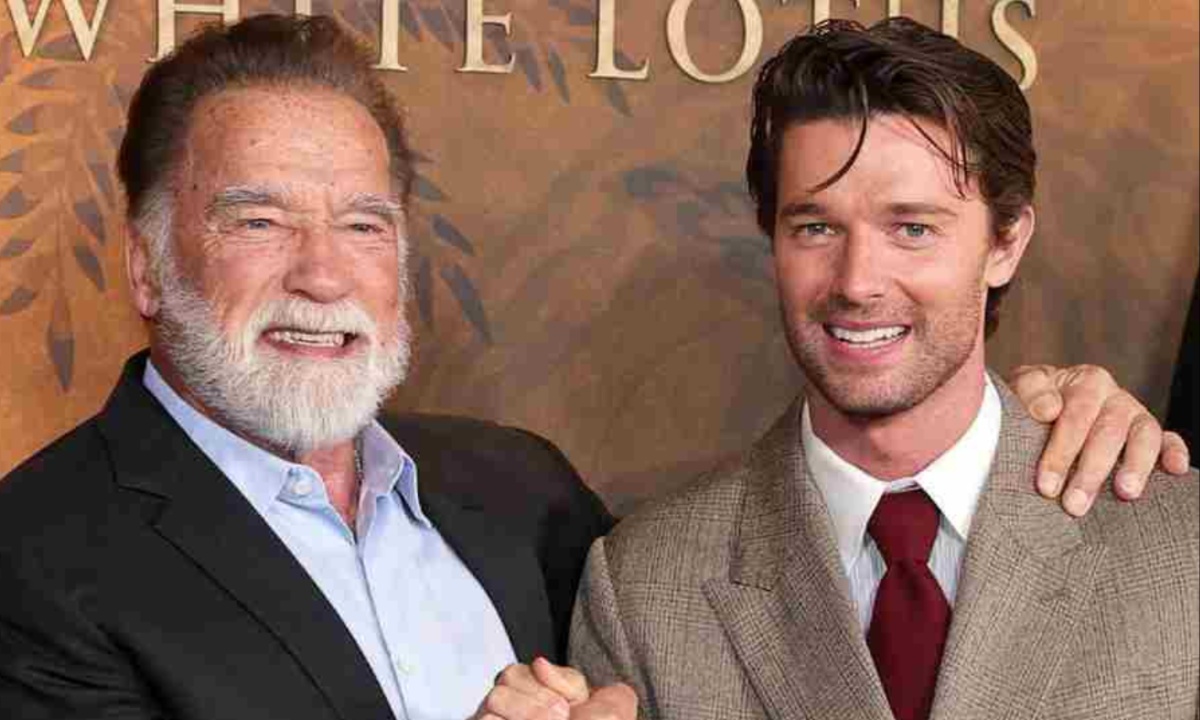Patrick Schwarzenegger’s performance in The White Lotus has positioned him as one of the season’s breakout actors. Unlike his father, Arnold, who became famous for iconic action roles, Patrick has leaned into character-driven performances. His portrayal of Saxon Ratliff—a layered, emotionally conflicted character—marked a major turning point in his career and showed his range beyond typical heartthrob roles.
In an open conversation, Arnold expresses amazement at his son’s evolution as an actor, admitting he was “blown away” by Patrick’s transformation. The newfound recognition Patrick is receiving has even prompted strangers to approach Arnold at the gym with both praise and distaste for Patrick’s character—proof of the performance’s authenticity and impact.
Patrick discusses the challenges of carrying the Schwarzenegger name. While Arnold sees it as a benefit, Patrick reveals it has often created skepticism among casting professionals. Directors like Mike White were concerned audiences would dismiss his work as nepotism. At one point, Patrick even considered using a different name to escape the shadow of his famous parents.
Forging Identity Through Effort, Not Inheritance, With Two Different Creative Career Paths
Despite the doubts, Patrick chose to embrace his name and prove his merit through hard work, a value deeply ingrained in him by his parents. Arnold commends Patrick for overcoming the nepotism stigma, comparing his journey to Jamie Lee Curtis, another actor from a famous lineage who earned acclaim through undeniable talent.

While Arnold entered Hollywood through bodybuilding and fame, Patrick pursued acting through study and smaller roles. Arnold reminisces about his early days auditioning for Lucille Ball and his rise through films like Conan and The Terminator, where he slowly distanced his career from being just about physicality. Patrick, meanwhile, took a more traditional actor’s path, building experience over time.
Patrick and Arnold compare their working relationships with visionary directors, Mike White and James Cameron, respectively. Both praise their directors’ strong creative visions and demanding but rewarding styles. Patrick appreciates Mike’s willingness to collaborate and improvise, while Arnold highlights the importance of discipline and repetition he learned from the old-school Hollywood system.
Balancing Legacy and Ambition: A Family’s Journey Through Film, Finance, and Independence
Arnold and Patrick talk about balancing artistry with financial strategy. Arnold recounts how he and co-stars took no upfront salary for Twins, choosing instead to profit from backend revenue—a move that paid off handsomely. Patrick reflects on how Arnold has always treated acting and business as twin pursuits and admires the financial savvy that shaped his father’s career.
Arnold’s pivot from film to politics created a major lifestyle shift for the family, one that his kids weren’t thrilled about. Patrick jokes about their childhood rebellion when Arnold traded movie sets for the governor’s office. Yet, those formative years on set were deeply influential, planting the seed for Patrick’s eventual career in acting.
Patrick recounts fond memories of being pulled out of school early, riding around studio lots in golf carts, and watching his dad transform into movie characters. Those early experiences with costumes, sets, and scripts made acting seem less like an abstract ambition and more like a natural progression.
Arnold proudly emphasizes that Patrick never used his connections to get ahead—no phone calls to studios, no lobbying for roles. Patrick forged his own path, committed to building a career based on substance rather than surname. Arnold calls him a “rare breed,” ending the conversation with pride in Patrick’s determination and authenticity.


